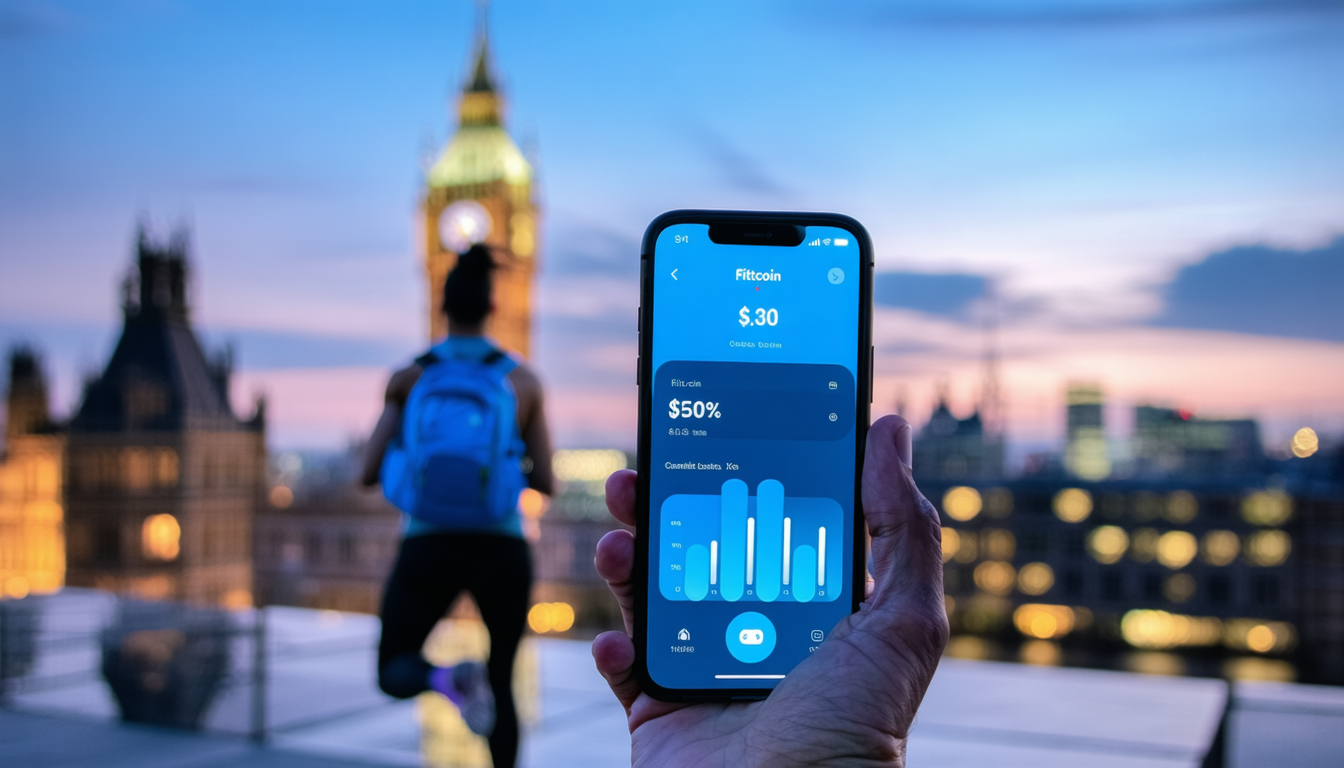A groundbreaking digital currency, fitcoin, has officially launched across the United Kingdom this week, aiming to revolutionize how Britons engage with fitness and wellness. The rollout comes as part of a nationwide initiative to incentivise healthy living through blockchain technology. Backed by several leading health-tech firms and supported by major gym chains, fitcoin is poised to reshape both the cryptocurrency landscape and personal health habits in 2025.
Fitcoin’s Debut: Who, What, Where, When, Why
On Monday morning, fitcoin became available for public use throughout the UK. The launch follows months of anticipation from both fitness enthusiasts and crypto investors eager for a new way to earn rewards from daily activity. Fitcoin allows users to earn digital tokens by completing verified workouts or participating in wellness challenges at partner gyms or via connected devices. Organisers say their goal is simple: motivate millions toward healthier lifestyles while integrating cutting-edge financial technology into everyday routines.
How Fitcoin Works: Technology Meets Wellness
Fitcoin operates on a secure blockchain platform that tracks physical activity through wearable devices and mobile apps linked with partner gyms nationwide. Each completed workout—whether it’s running on a treadmill or attending a yoga class—earns users fitcoins credited directly to their digital wallets.
- Users can redeem these tokens for discounts on gym memberships
- Purchase sports equipment
- Access exclusive classes
- Trade them on select cryptocurrency exchanges
According to Dr. Emily Carter of London Digital Health Institute: “The integration of real-world physical activity with blockchain rewards marks an exciting step forward in preventive healthcare.”
Industry experts highlight that fitcoin’s transparent ledger system ensures all transactions are verifiable and tamper-proof—a key factor driving trust among early adopters.
Market Impact and Early Adoption Trends
Since its soft launch last month among select beta testers in Manchester and London, over 50,000 users have registered accounts—surpassing initial projections by nearly 30%. Major gym chains including PureGym and David Lloyd Clubs have signed partnership agreements allowing members seamless access to earning opportunities via existing membership cards.
Recent data shows:
- Over £2 million worth of fitcoins were distributed during pilot programmes
- Average user engagement increased by 18% compared with traditional loyalty schemes
- More than 200 independent fitness studios have joined the network since June
James Patel from CryptoUK commented: “We’re witnessing unprecedented demand as people look for tangible value beyond standard reward points.”
Regulatory Environment & Security Measures
The Financial Conduct Authority (FCA) has closely monitored the rollout amid growing scrutiny over consumer protection within emerging crypto markets. Fitcoin developers worked alongside regulators during development stages; robust anti-fraud protocols are built into every transaction layer.
All user data remains encrypted under GDPR-compliant standards; biometric verification prevents fraudulent claims of physical activity—a concern raised during early trials but now largely addressed through advanced AI-driven monitoring tools.
Potential Challenges Facing Fitcoin Adoption
Despite strong momentum out of the gate, some analysts caution about potential hurdles:
- Market volatility typical within cryptocurrencies could affect token value stability.
- Widespread adoption depends heavily on continued partnerships between tech providers and fitness operators.
- Skepticism persists among older demographics less familiar with digital currencies or wearables technology.
However, proponents argue that clear utility—immediate rewards tied directly to healthy behaviour—sets fitcoin apart from speculative altcoins lacking real-world application.
Broader Implications for Public Health & Finance Sectors
If successful at scale across Britain’s diverse population base:
- NHS officials suggest such incentive models could reduce long-term healthcare costs associated with inactivity-related illnesses.
- Financial analysts predict secondary markets may emerge around trading earned tokens much like airline miles or supermarket points—but potentially more liquid due to decentralised exchange listings.
- Tech sector observers see opportunity for further innovation combining IoT (Internet-of-things) sensors with smart contracts automating reward distribution based on verified outcomes rather than self-reporting alone.
Dr. Carter notes: “This convergence between fintech innovation and public health policy could serve as a blueprint internationally if proven effective here.”
Looking Ahead: Future Developments & Expansion Plans
Developers plan phased expansion throughout Europe later this year pending regulatory approvals abroad; negotiations are underway with insurance providers exploring premium discounts tied directly to sustained healthy behaviours tracked via fitcoins earned over time.
In parallel:
- Additional features—including group challenges,
- Corporate wellness integrations,
- And charitable donation options using accumulated tokens
are scheduled for release before year-end according to company statements shared Tuesday morning.
Conclusion
As Britain embraces its newest homegrown cryptocurrency tailored specifically toward promoting active lifestyles,
fitcoin stands at the intersection of two powerful trends shaping society today—the rise of decentralised finance solutions,
and increasing demand for personalised health incentives.
Whether it will deliver lasting impact remains uncertain;
but early indicators suggest strong appetite among consumers seeking both financial benefit—and better wellbeing—from their daily choices.






